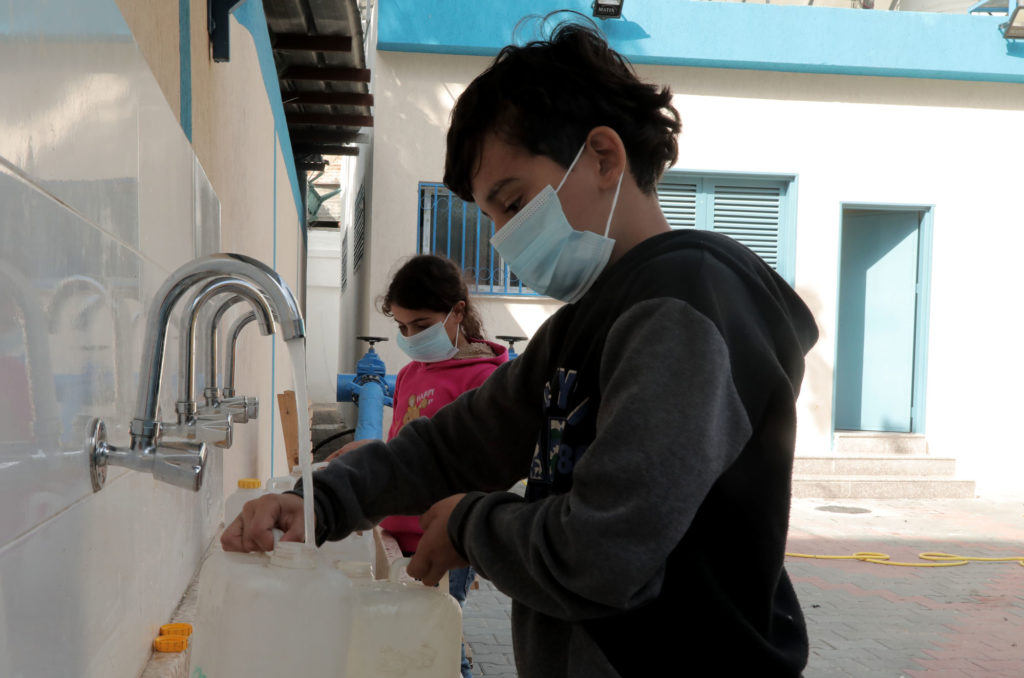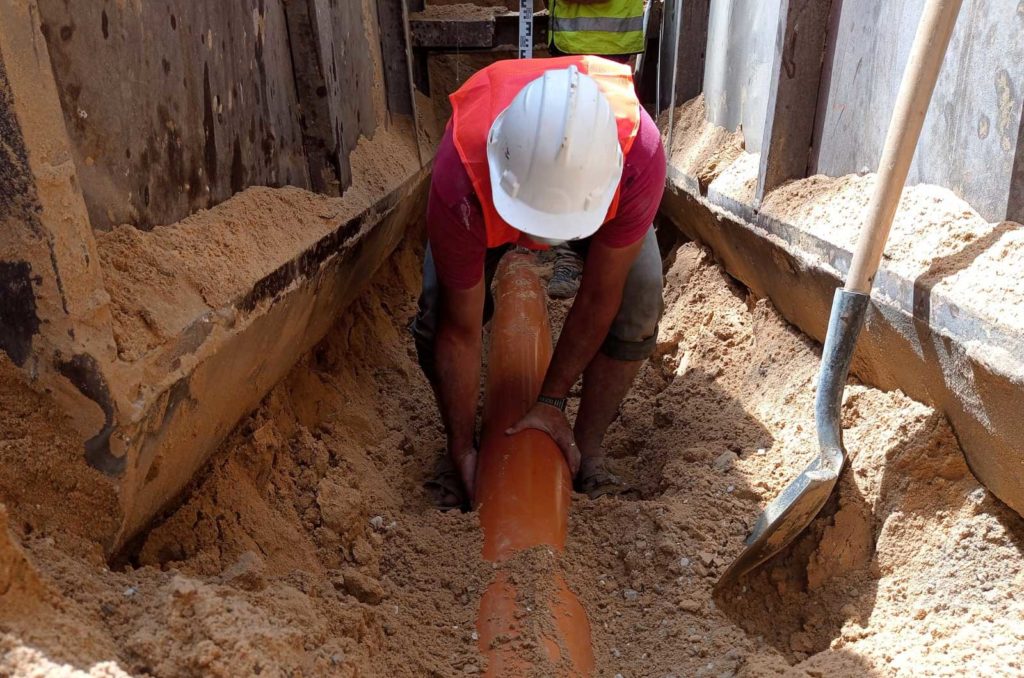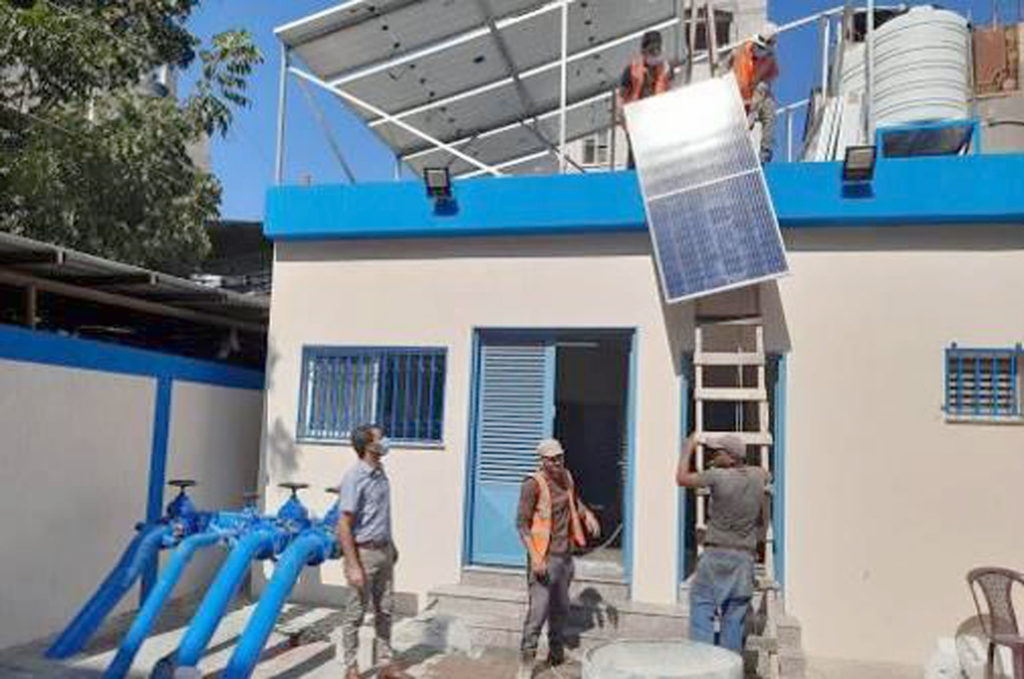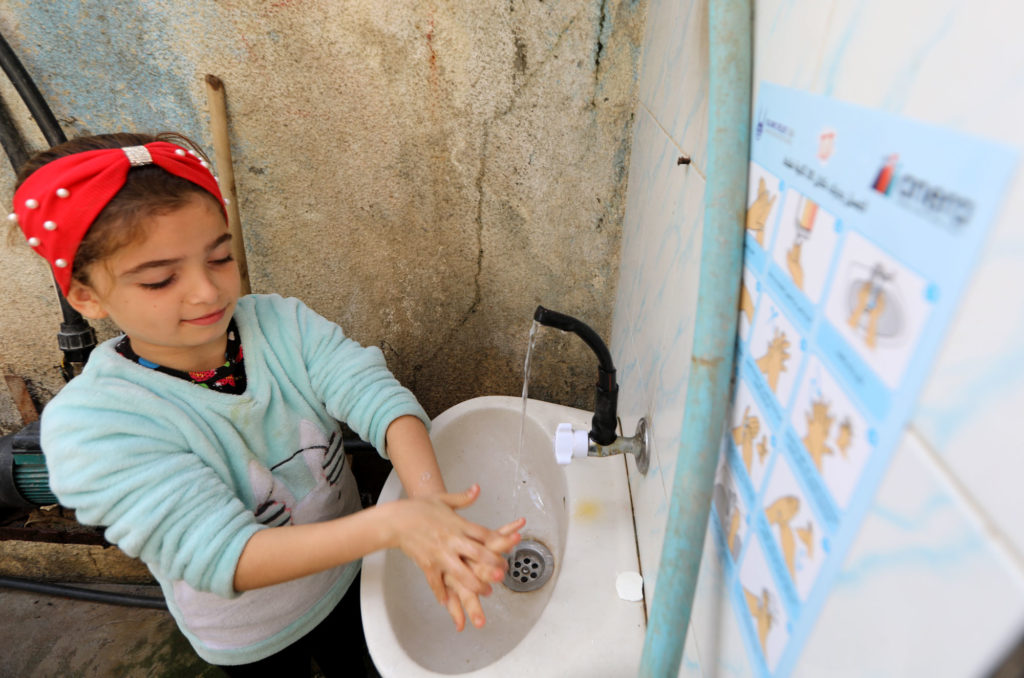A Primer on Water in Gaza
Posted in: Programs
Our Anera materials have often quoted the statistics that say somewhere between 90% to 97% of Gaza’s water is undrinkable. The numbers come from a multitude of trusted sources, including our own teams of engineers on the ground.
Perhaps you have wondered how Anera is making a difference in Gaza then, given that the numbers always remain so dire. To understand the problem, we first have to start with how people get their water in Gaza.
How People Access Water in Gaza
According to the Coastal Municipality Water Utility, around 85% of the water pumped through municipal water networks to homes, schools, healthcare facilities, businesses and community organizations comes from Gaza’s Coastal Aquifer, the only natural freshwater source.
Another 12% comes through Israel (via Mekorot, the national water company), and the remaining 3% of water comes from three desalination plants in the northern, middle and southern areas. That water is desalinated and pumped into large tanks that in turn feed into the aquifer, helping to replenish its depleted supplies.
Municipal water networks pump from the aquifer, but the water is too salinated and contaminated for people to drink. Families use it for showering and cleaning. However, it often comes through taps in a trickle. The pumps and pipes that deliver it to homes are very often rotted and weak. Some people aren’t connected at all.
The majority of Gaza families therefore have to buy potable water from local companies that come to their houses and fill up large water tanks. Families draw from those tanks for cooking and drinking and, very often, because they have little choice, for cleaning too. Even then, the purchased water is often polluted.
How Anera’s Water Work in Gaza Helps
Anera’s interventions repair deteriorating water networks that no longer work efficiently, helping to minimize water loss. We fix or replace water pumping stations at wells that serve whole communities. We connect families to water supplies they can rely on. We install solar-powered irrigation systems on farms. We repair rainwater collection basins that replenish the aquifer. And we install reverse osmosis water purification systems at healthcare facilities, schools, community centers and wells.
Anera’s water network interventions make connections at the household level stronger and more reliable. Good water connections save families precious income by sparing them from having to buy water for cleaning. This is huge in a place where some people are spending one third of their income on water. They also save some families the time and hassle of having to leave their homes to fill and lug home containers of water from outside sources.
The reverse osmosis purification systems we install at community organizations provide drinkable water at the tap. Without the systems in place, organizations are forced to buy trucked water produced by unregulated private companies at 15-20 times the cost of water piped to their buildings from municipal systems. Anera’s purification systems clean the municipality’s water, so organizations can have confidence that the water they draw from their taps is clean. And they can use the funds they save on water for vital community services that help the people who rely on them.
Anera has also started installing reverse osmosis systems on the wells we rehabilitate in Gaza. At each well site there is a set of community taps for people in the neighborhood to use for drawing free, clean drinking water.*
And, our work extends to repairing large water basins that collect and filter rainwater for the aquifer. Because the aquifer is the main source of water in Gaza, and it is getting depleted by a growing population, improving efficiencies for replenishing it is essential.
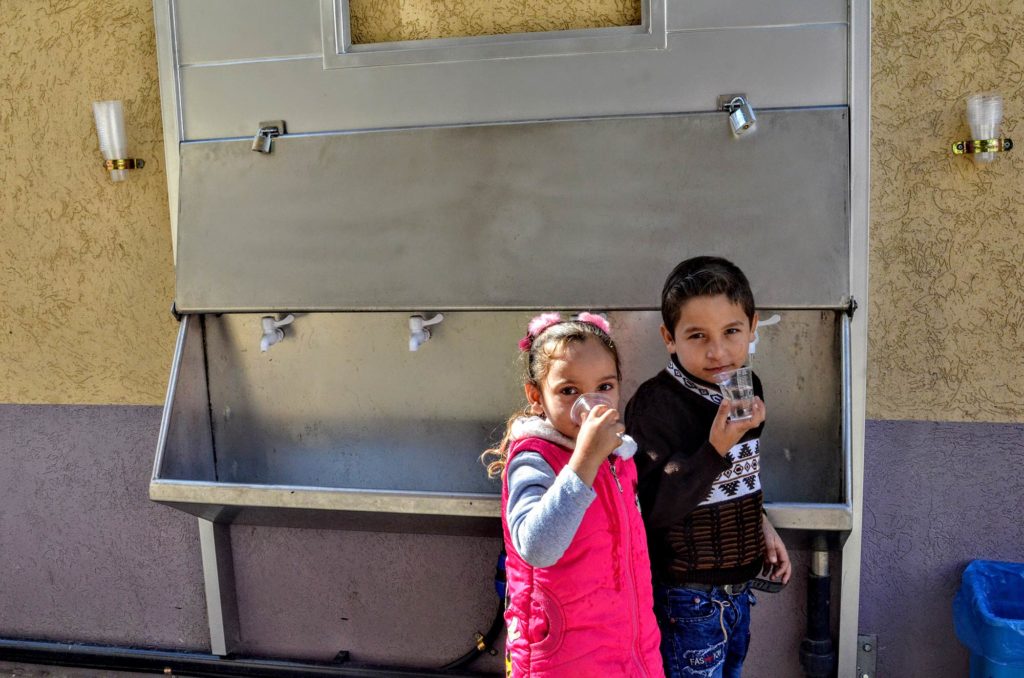

A Sustainable Solution to the Water Crisis
Water scarcity is an existential crisis for Gaza. Water is being pumped from the ground faster than it is being replenished through rainfall — at more than three times the renewable rate. To make matters worse, rainfall in Gaza has been decreasing in recent years. If the aquifer is depleted past a certain point, it will become permanently polluted, leaving Gaza with no natural source of water in a region already famous for its water scarcity.
A long-term solution to Gaza’s water woes requires large-scale desalination facilities and consistent access to electricity (to power both desalination equipment and sewage processing facilities so that nitrates no longer pollute the aquifer). Successfully achieving these goals will require the support and coordination of governments, and political agreements that allow such infrastructure to be built and to operate. It is an urgent task.
In the meantime, people must find ways to access adequate clean water for their daily needs. Anera’s work building water infrastructure is a vital part of that effort, helping to ensure that more families have water in their homes, and access to clean potable water for their children.
*Unfortunately, scaling this up to pump reverse osmosis filtered water directly into people’s homes would require a great deal of funding to purchase equipment with adequate capacity and for operation and maintenance. Disposing of the sheer volume of saline-concentrated wastewater that would be generated presents another obstacle. If the wastewater reentered the aquifer, it would worsen the already growing problem of excess salinity in the ground water.
OUR BLOG
Related
In this log, Anera provides regular updates on unfolding hostilities in Lebanon and our response efforts. Our community makes our emergency response possible. Please consider donating today. Our team is working around the clock to expand this assistance, but we…
In this log, Anera provides updates on unfolding war in Palestine and our response. Please stay tuned here for the latest information. To subscribe for weekly updates via SMS on our response in Gaza, text GAZA to 1-866-549-0055. Questions? See…
You can show your support for families affected by unimaginable hardships and violence in Palestine and Lebanon by donating to Anera this GivingTuesday, December 3. All donations will be DOUBLED to have 2X the impact on refugees and vulnerable communities…

